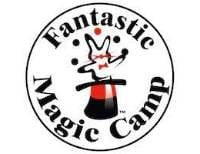If I ever go back to classroom teaching, I’m going to fully embrace making mistakes as the absolute best learning opportunity – moments for celebration, not discouragement. The scientific community has long regarded error analysis as the foundation for scientific advancement, but outside of that world we seem to want to get things right the first time and if we don’t, we see a situation that calls for corrective action.
Here’s an example of the value of error analysis – when youth are first presented with the task of adding two fractions, they instinctively add the numerator and denominator. In the United States, we usually want to undo this instinct through modeling and demonstration of the correct way to add fractions. But from another approach, the Japanese national mathematics curriculum leans into that instinctive first step, and takes kids through a series of activities that help bring them to their own conclusion–that adding the numerator and denominator simply does not work! At that point of recognition, teachers can then lay out a new view of fractions and how they can be combined.
PBS KIDS has a new show for children ages 2-6 called Work It Out Wombats! that tells stories using computational thinking, the skills employed in computer programming and other creative endeavors. Central to computational thinking is the ability to debug, or fix, inevitable errors. The three wombat siblings look for challenges or encounter problems in their daily adventures, then determine steps to reach their goals. They are passionate, but they don’t always know the best way forward. By using computational thinking, they have a powerful toolkit for self-expression, for building projects and for getting out of messes.
The next time I know I’ve made a mistake, and my kids are present, I’m going to try a new approach. Rather than being negative, I’m going to gleefully state, “Aha! I’ve messed up! Now what can I learn from this?” My kids are teenagers, so they’ll groan, but maybe they’ll pick up on this notion that we all need some debugging, so we might as well have fun with it.
Reminder: This is the last month for submissions to our K-5 Writers Contest! Go to www.austinpbs.org/writers for details! All stories get published in eBook form!
Benjamin Kramer, PhD, is the director of education for Austin PBS.

















